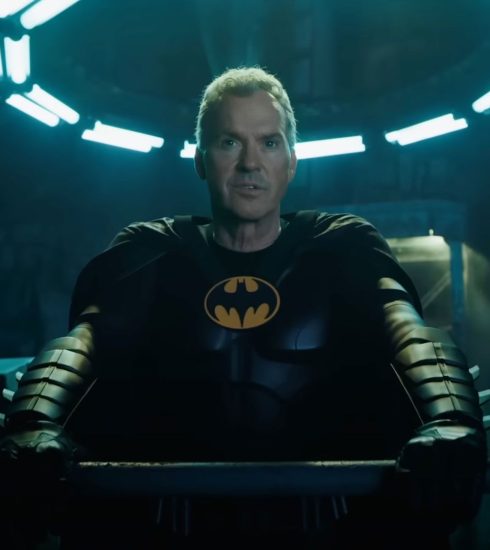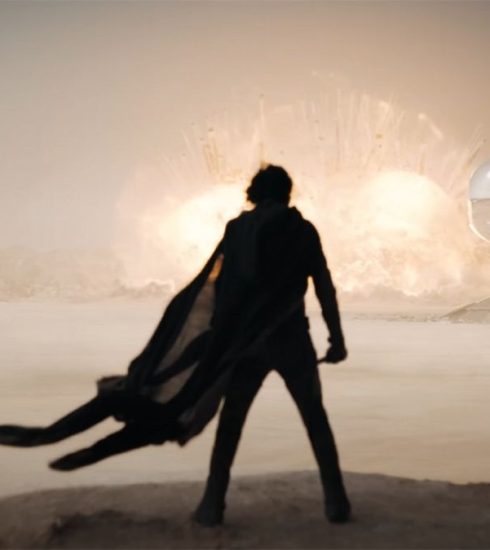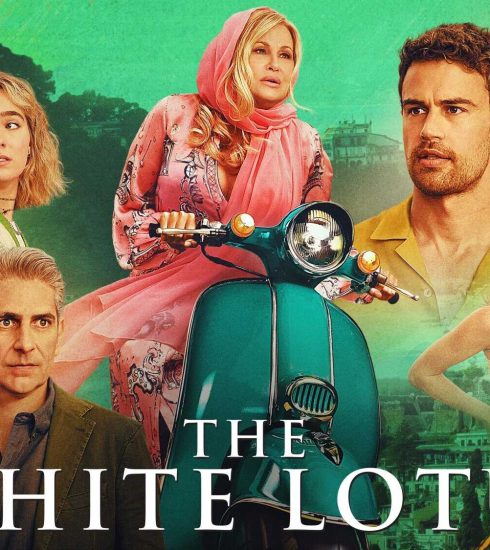Movie Review: Mission: Impossible—The Final Reckoning
Mission: Impossible—The Final Reckoning has a running time of just under three hours. Within those three hours, alas, I’d say that Tom Cruise has a running time of only a minute or two. As the world’s self-professed biggest fan of Cruise the cardio demon, this is dispiriting news: what a letdown compared to Mission: Impossible—Ghost Protocol (2011), in which he raced heroically through the blinding fury of a Dubai sandstorm. And who could forget the blissful London chase sequence from the best one, Mission: Impossible—Fallout (2018), in which Cruise spent a whole seven minutes tearing up a staircase, then sprinting from one rooftop to another?
Cruise does go for another brisk London jog in The Final Reckoning, and although he’s had tougher workouts, he seems intent, as ever, on outrunning time itself, an idea literalized by the sight of Big Ben glowing in the distance, ticking away the seconds until doomsday. Cruise’s character, the Impossible Mission Force agent extraordinaire Ethan Hunt, has a bomb that needs defusing; a beloved teammate, Luther (Ving Rhames), who needs rescuing; and an artificially intelligent nemesis, the Entity, to banish to the pits of cyberhell. But for Cruise the actor, who turns sixty-three (63!!!!) in July, running has become more than a means to a narrative end. He does it for the same reasons he scales skyscrapers, plunges into watery depths, and dangles from renegade aircraft: to cast aside any hint of creeping senescence and to remind us what an honest-to-God movie star is willing to risk for our entertainment.
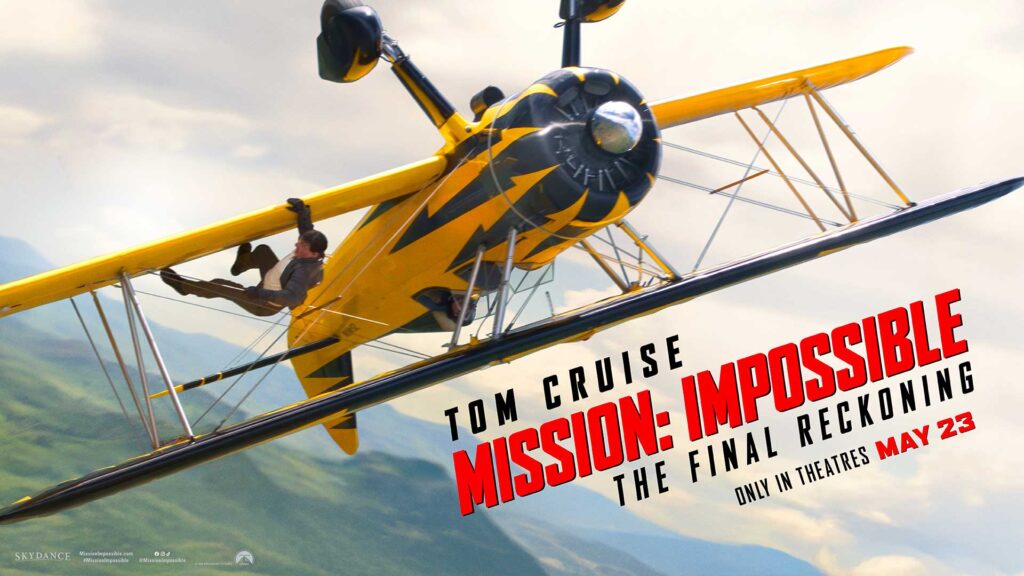
And that means something in a Hollywood that now caters to puny screens and punier visions, outsourcing the finer mechanics of action filmmaking to the visual-effects department. (Is it any wonder that A.I. is this movie’s supervillain?) Cruise means to turn back the clock in more than one sense. He may be older and puffier around the eyes than in 1996, when the first Mission: Impossible film was released. But he still dives headlong into each adventure as if it were his personal fountain of youth.
But has that fountain now run dry? The Final Reckoning is Cruise’s eighth Mission: Impossible outing and—assuming the title isn’t wearing a rubber mask, sadly his last. The script, which the director, Christopher McQuarrie, co-wrote with Erik Jendresen, too often sags under the weight of end-times portents; even for a series that treats global destruction as an occupational hazard, the mood has never been quite this oppressively doomy. The Entity, which McQuarrie introduced in Mission: Impossible—Dead Reckoning Part One (2023), has now conquered all of cyberspace and thus become more pernicious, more deadly, and more tedious to summarise than ever. It has endangered world economies, unleashed plagues of misinformation, and even spawned a powerful cult that seeks to hasten humanity’s end. Paris (Pom Klementieff), herself a former servant of the Entity who has since joined Ethan’s team, murmurs, “It is written,” as if the techno-apocalypse had been foretold aeons ago.
About halfway through The Final Reckoning, as Ethan descends into the frigid depths of the Bering Sea, something overdue and wonderful happens: the movie falls silent. Until now, there has been an overabundance of micro-logistics, even for a Mission: Impossible movie: there are aircraft carriers to be commandeered, secret coördinates to be transmitted, and laws of physics to be circumvented. (Also, fine actors playing top government and military leaders to be acknowledged, including Nick Offerman, Janet McTeer, Hannah Waddingham, and, most impressively, as a submarine captain, Tramell Tillman (Mr. Milchick on Severance!).) So much information is laid out—and so much emphasis placed on risks, stakes, and disastrous potential outcomes—that you strongly suspect only a fraction of it will matter in the end, and you’re right. For perhaps the first time in McQuarrie’s assured handling of these movies the stunts lead the plot, not the other way around. For my money, Fallout (2018) remains the best of the lot.
But, finally, the expository blather dies away, and the mission is upon us: Ethan Hunt, meet shipwrecked submarine. His aim is to retrieve a chunk of hardware holding lines of digital code (it is written!) with the power to override and perhaps defeat the Entity for good. For a few spellbinding minutes, Cruise does everything he could possibly do underwater, short of singing “Eat your heart out, James Cameron” into his oxygen tube. He sloshes his way through waterlogged chambers, swims past unexploded Russian torpedoes, and briefly swim-dances in his underwear. All scored to the sound of t
he ocean’s depths; It’s action cinema at its purest and most existential.
For all the dangerous missions that Hunt has embarked on solo, I can’t recall one that has conveyed such a primordial sense of abandonment. For a moment, Lalo Schifrin’s irresistible theme is a distant memory, and the fate of humanity really does seem to rest on the shoulders of the most unreachable man on the planet. Such loneliness is another I.M.F. occupational hazard, but a self-imposed one: again and again, both Reckoning movies emphasise that Ethan’s most heroic virtue—his refusal to sacrifice his teammates for the greater good—is simultaneously his gravest weakness. It explains why, beyond a valedictory sense of full-circle symmetry, McQuarrie piles on so many callbacks to the first Mission: Impossible film, in which Ethan’s teammates were murdered before his very eyes—a formative trauma that he seemed to forget for long stretches of the series, but which has been selectively retrieved, like sublimated source code, for this movie’s narrative purposes.
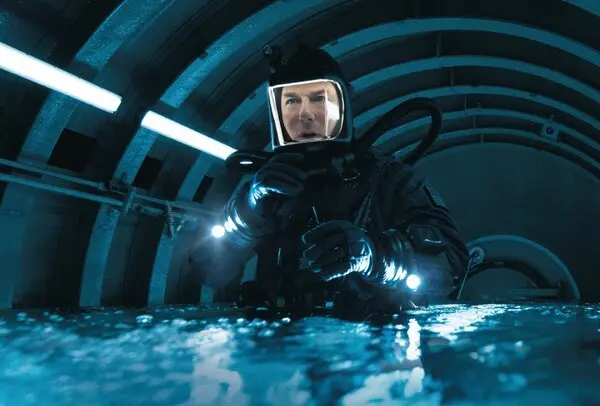
More than once, McQuarrie splices in an indelible image from the 1996 film: a knife falling into a top-secret vault, the blade embedding itself in a desk. That same knife shows up, eight films and nearly 30 years later. It’s one example of the sprawling attempt to encompass all eight films in this potential finale. Not that I craved concision from this film; McQuarrie and Cruise have earned their double-decker climax. But, amid the brooding sprawl, I wanted more of the brand of action we got from Ghost Protocol to Fallout and less of the unspeakably boring “villain” (he’s not even the main threat here) of these last two films; Gabriel (Esai Morales), who bears the name of an archangel but never achieves the stature of an archenemy.
Overall, if this is the end of the Mission: Impossible franchise, it has been an honour. Better and more consistent than the Daniel Craig Bond movies, in this writer’s opinion, and a sheer credit to Tom Cruise’s adrenaline addiction. For 25 years (and especially the last 5), he has led the charge to save the theatre experience by pushing the limits of stuntwork. What separates this franchise from any other is the visceral nature of knowing it really is Tom Cruise hanging off the Burj Khalifa or BASE jumping into Paris or hanging off that train a la the Uncharted games. I’m obviously extremely biased, but I’ll miss these movies. They were a lot of fun and genuinely put butts in theatre seats. They’ll probably try to revive the franchise in a few years with a new lead, but without Cruise (if he’s doing these movies in his 70s, we have to stop him for his own good at that point), they probably move from real stunts to green screen effects like everyone else, and that’s just not a mission I’m willing to accept.
7/10
Boluwatife Adesina is a media writer and the helmer of the Downtown Review page. He’s probably in a cinema near you.




